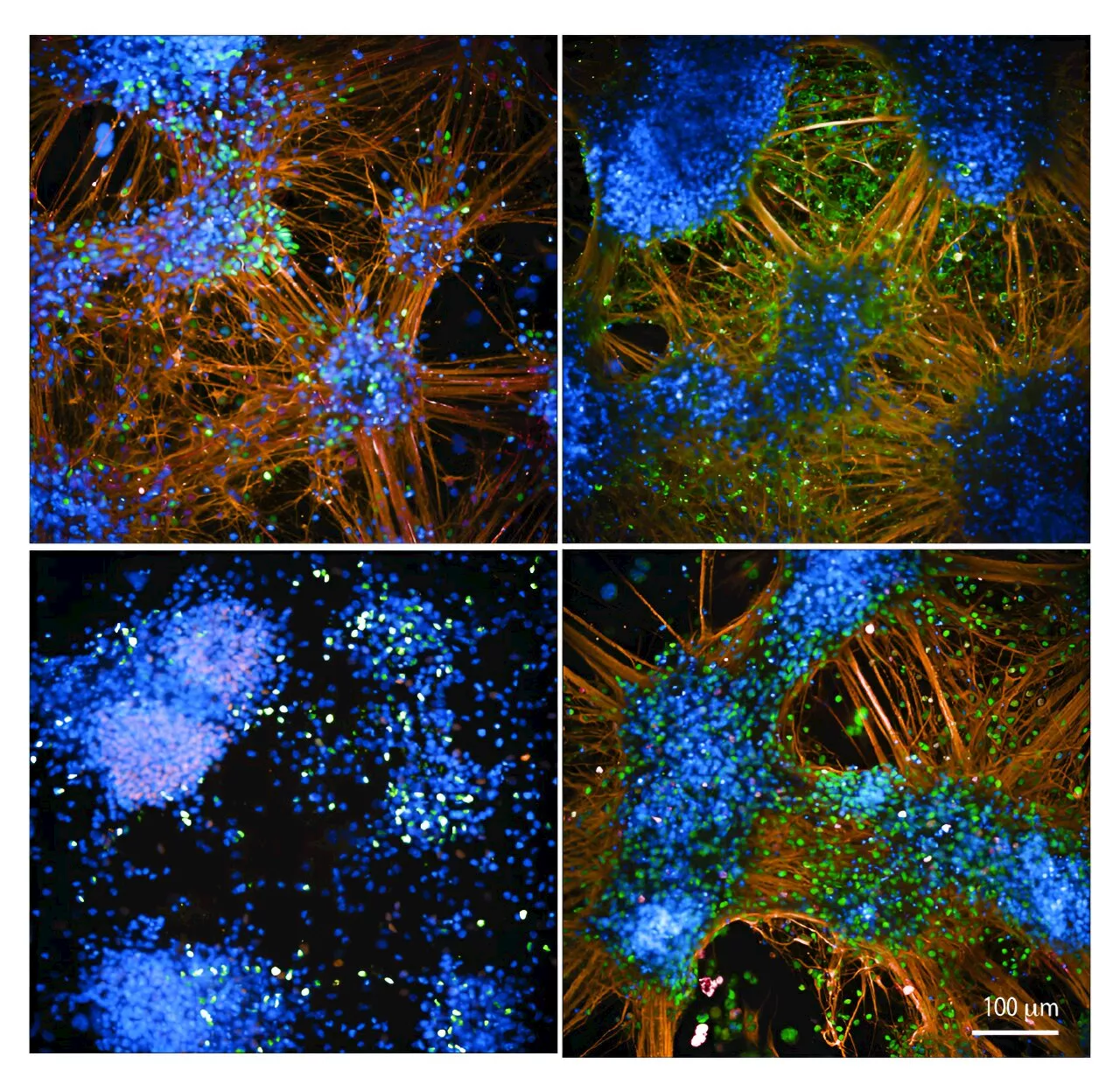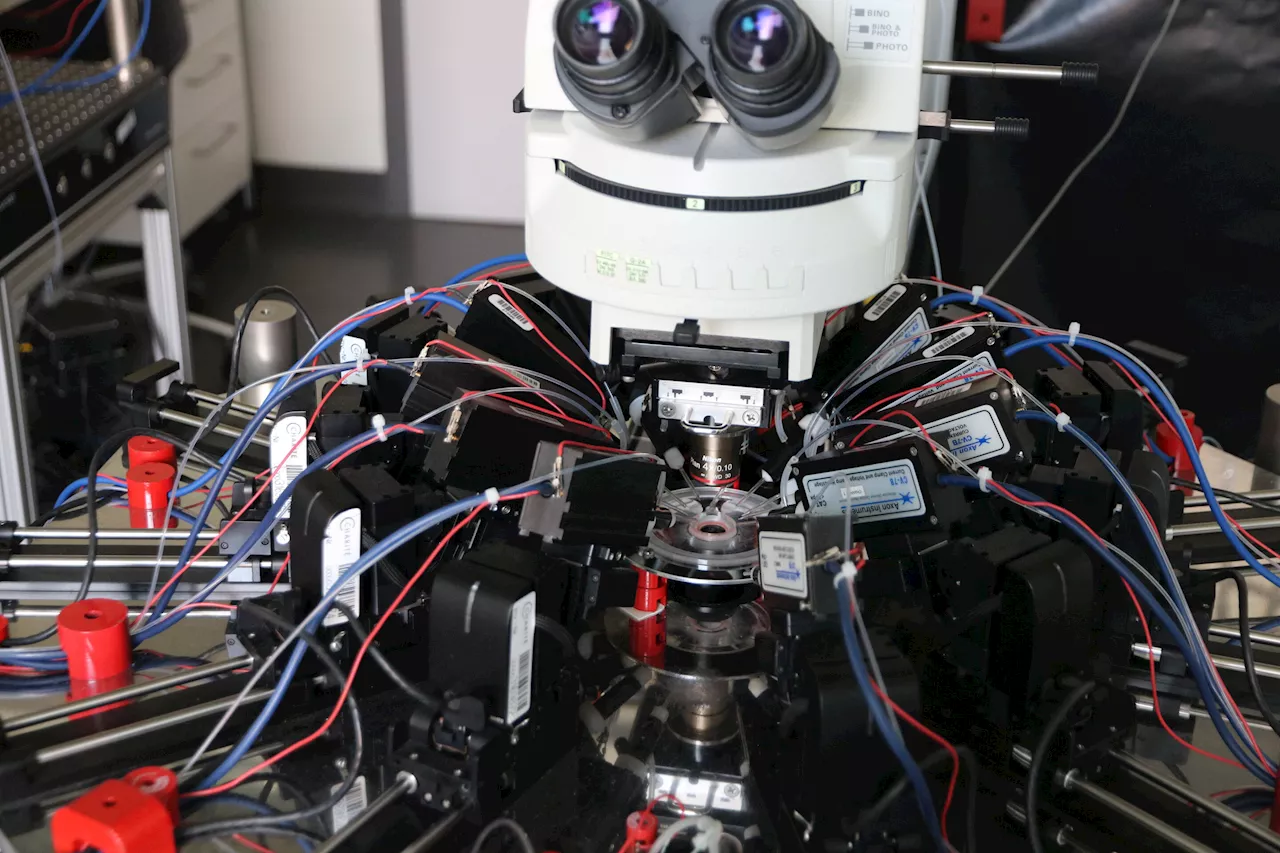Contrary to previous assumptions, nerve cells in the human neocortex are wired differently than in mice. Those are the findings of a new study conducted by Charité-Universitätsmedizin Berlin and published in the journal Science.
Study finds that human neuron signals flow in one direction retrieved 18 April 2024 from https://medicalxpress.com/news/2024-04-human-neuron.html
This document is subject to copyright. Apart from any fair dealing for the purpose of private study or research, no part may be reproduced without the written permission. The content is provided for information purposes only.Use this form if you have come across a typo, inaccuracy or would like to send an edit request for the content on this page. For general inquiries, please use ourThank you for taking time to provide your feedback to the editors.
Your feedback is important to us. However, we do not guarantee individual replies due to the high volume of messages.to let the recipient know who sent the email. Neither your address nor the recipient's address will be used for any other purpose. The information you enter will appear in your e-mail message and is not retained by Medical Xpress in any form.Get weekly and/or daily updates delivered to your inbox.
Medicine Research Health Research News Health Research Health Science Medicine Science
United States Latest News, United States Headlines
Similar News:You can also read news stories similar to this one that we have collected from other news sources.
 Space travel alters human vascular cell function, study findsStudy investigates the transcriptomic changes in human vascular smooth muscle cells exposed to spaceflight, revealing significant alterations in gene expression affecting cellular function and phenotype.
Space travel alters human vascular cell function, study findsStudy investigates the transcriptomic changes in human vascular smooth muscle cells exposed to spaceflight, revealing significant alterations in gene expression affecting cellular function and phenotype.
Read more »
Alpine respond to team sale rumours after troubled start to F1 2024Alpine isn't up for sale, despite rumours to the contrary, the team has insisted...
Read more »
 Industrial robots make people feel worse about jobs and themselvesStudy finds workers' sense of meaningfulness and autonomy declines with automation
Industrial robots make people feel worse about jobs and themselvesStudy finds workers' sense of meaningfulness and autonomy declines with automation
Read more »
 Researchers make mice a more powerful tool to study a wide range of human diseasesIn humans, the exact same mutation in a specific gene can produce widely different outcomes. It's a bit like adding the same amount of salt to different recipes—the effect on the finished dish can be quite different, depending on the mix of other ingredients.
Researchers make mice a more powerful tool to study a wide range of human diseasesIn humans, the exact same mutation in a specific gene can produce widely different outcomes. It's a bit like adding the same amount of salt to different recipes—the effect on the finished dish can be quite different, depending on the mix of other ingredients.
Read more »
 One in five US cancer patients join in medical researchMore patients these days are taking part in cancer research, a new study finds.
One in five US cancer patients join in medical researchMore patients these days are taking part in cancer research, a new study finds.
Read more »
 Trust your doctor: Study shows human medical professionals are more reliable than artificial intelligence toolsWhen looking for medical information, people can use web search engines or large language models (LLMs) like ChatGPT-4 or Google Bard. However, these artificial intelligence (AI) tools have their limitations and can sometimes generate incorrect advice or instructions.
Trust your doctor: Study shows human medical professionals are more reliable than artificial intelligence toolsWhen looking for medical information, people can use web search engines or large language models (LLMs) like ChatGPT-4 or Google Bard. However, these artificial intelligence (AI) tools have their limitations and can sometimes generate incorrect advice or instructions.
Read more »
